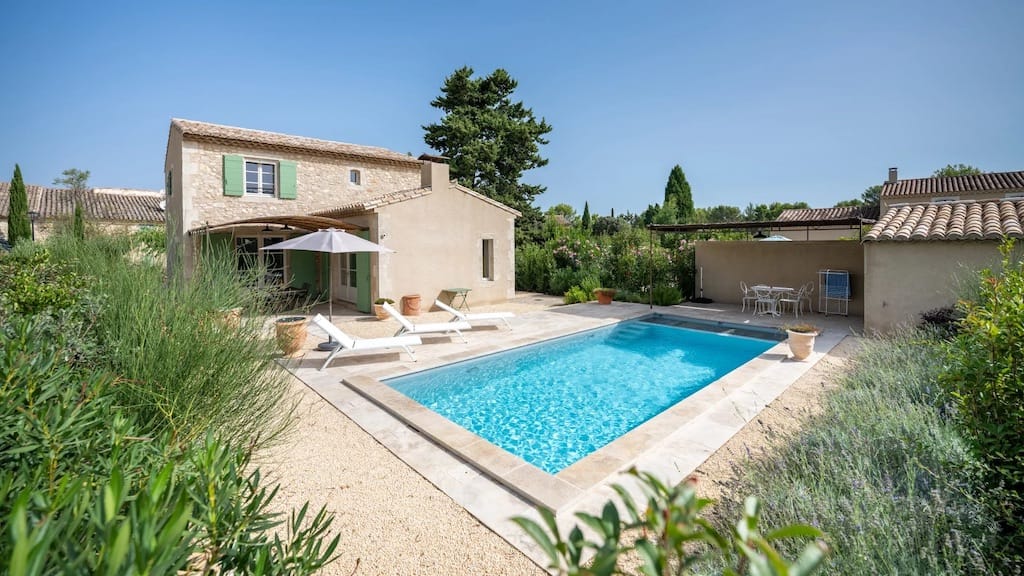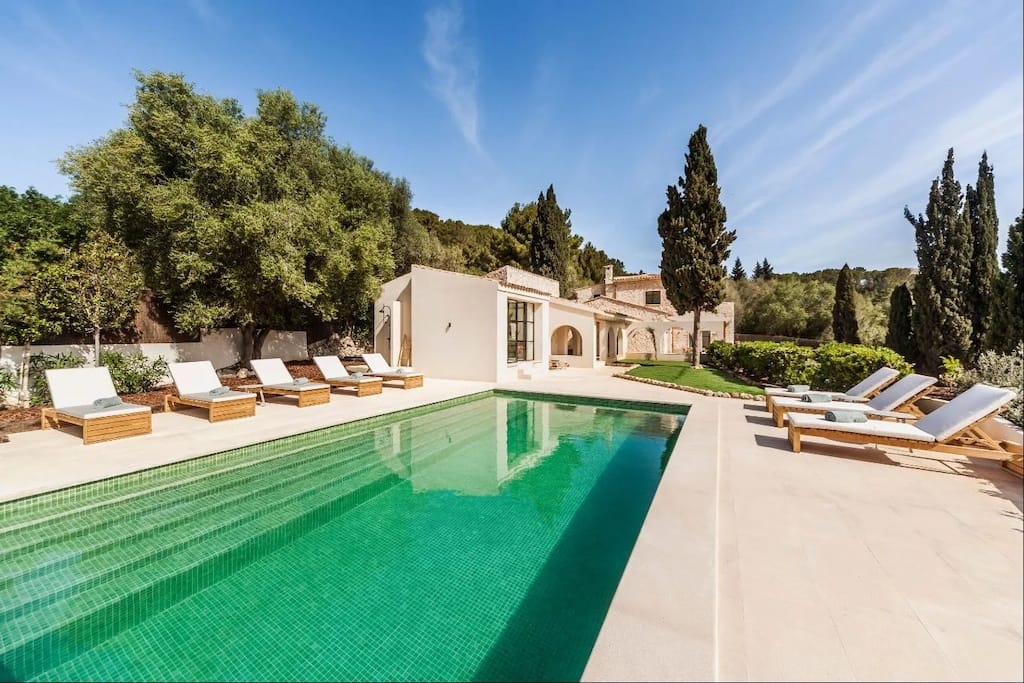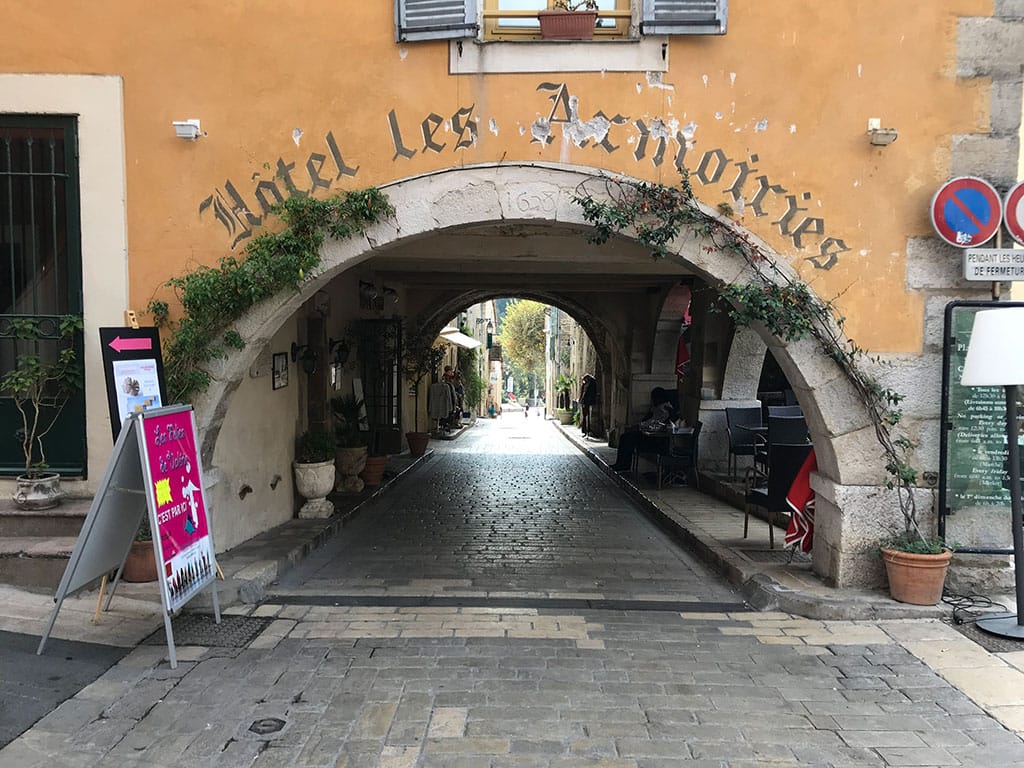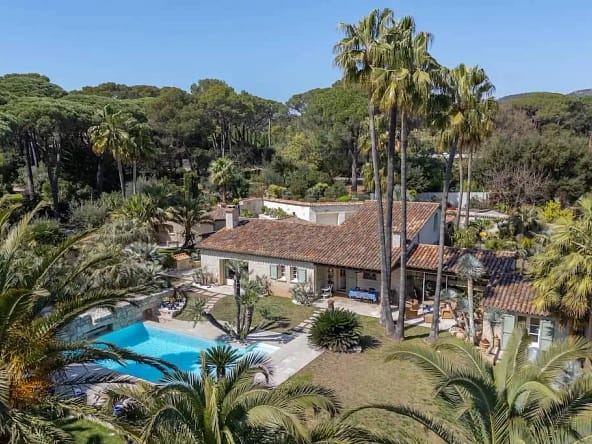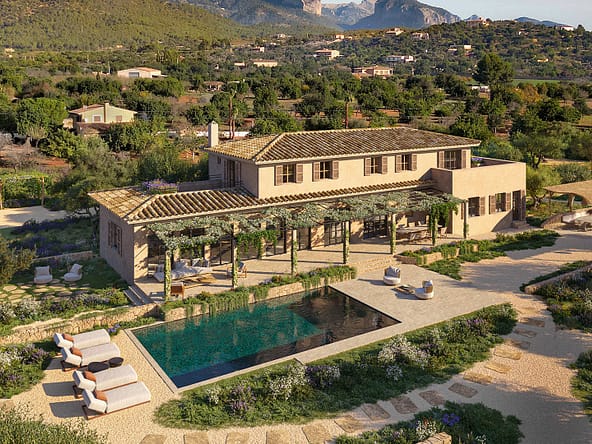You’ve decided it’s time: You’re ready to own property in France. Buying a home in France is such an exciting venture, and you’re ready to get moving as fast as possible. You’re already daydreaming about decorating your new home and having guests over to visit.
Remember, though – you have to keep a calm, clear head and ask plenty of questions during the buying process so that you know exactly what you’re getting yourself into.
Questions To Ask When Buying Property in France
When you’re visiting properties and ready to buy one, knowing what questions to ask when buying property in France will help you decide whether a particular property is right for you or not. Here are 18 common questions you should consider.
1. Why is the owner selling the property?
The answer to this question will help you understand the owner’s reasons behind moving. Understanding their motivation to sell can provide insight into the following:
- The property’s current market value
- Long-term investment potential
- Problems with the property
- Personal preferences that may match yours
If you’re able to understand why the seller has listed their property, you may find a way to negotiate the price. For example, if they’re no longer able to afford it or they have to move quickly because of a lifestyle change, they may lower the price in order to finalise the sale fast.
Also, if the seller’s personal preferences align with yours, you may find that the property isn’t the right fit for you. For example, if the home is being sold because it’s too far from international schools, you may decide that you need a different location as well.
2. How long has the seller lived in the property, and has it been used as a full-time or part-time home?
Finding out how long the owner has had the property and how they’ve used it during that time can shed light on a number of factors, such as:
- Condition of the Property: Short-term owners tend to neglect upkeep, while long-term owners often do a better job of maintaining their property.
- Neighbourhood Considerations: A person who has lived in their home for a long time is likely satisfied with their neighbourhood. However, a home that’s had a lot of turnover could point to a problem with the neighbourhood, like crime, noise, or low property values.
- Usage Impact: A full-time home has more wear and tear than a part-time home. On the other hand, a part-time home may have maintenance issues from being unoccupied for periods of time.
Also, if the owner used the property as a part-time holiday home, that could mean it’s in a location with good rental potential.
3. Has the property been rented out, and what type of revenue did the owner earn?
Knowing the answers to these questions will give you an idea of how viable the property is as a rental business. It’s best if the property has made consistent rental income over the years, as that indicates market demand. Plus, high-demand rental areas mean you can charge higher prices and earn more revenue. If you plan on buying an investment property, find out the name of the property manager or rental agency the owner has used.
4. How long has the property been on the market?
For example, if the property has been on the market for a while, the owner may be motivated to sell and will lower the price. On the other hand, a property that hasn’t sold may be undesirable for some reason, and it pays to look into why that may be.
5. Have there been any offers on the property?
This will give you an idea if there is any other interest in the property and, consequently, competition. Finding out if there have been any offers on the property gives you insight into several aspects of the property and the sale, including:
- Market competitiveness
- Problems with the property
- The seller’s motivation
Knowing whether or not offers have been made and determining why they weren’t accepted can make it easier to negotiate the terms of the sale.
It’s also possible that the seller is inflexible and unwilling to negotiate, which is why they haven’t accepted an offer. In this case, you may be able to appeal to the seller’s needs in order to get the property you want.
6. What does property tax (and any other taxes) cost annually?
Finding out about relevant taxes before purchasing a property is a crucial step. It’s necessary for accurate financial planning and to understand the total cost of ownership, not just the home’s purchase price.
Here are a few more reasons to find out about the taxes you’ll need to pay if you purchase the property:
- Comparing Tax Rates: Property taxes can vary based on location. If the tax costs don’t suit your budget, you can look for a property in another area for a better fit.
- Investment Considerations: If you’re buying an investment property, paying high taxes on it will reduce your net income and ROI.
- Future Taxes: Knowing the tax history in the area can help you predict future increases that you’ll need to be prepared for.
Also, ask about tax benefits, as you may be eligible for credits or deductions if you purchase the property.
7. Are there any furnishings included in the sale?
If the home is being sold fully or partially furnished, that may raise the cost while making it more convenient for you to move into the property. While the sale price may be higher, you won’t have to spend the money to furnish the home after buying it.
On the other hand, if you already have furnishings that you want to use or you don’t like the style of the home’s furnishings, you’ll need to negotiate with the seller or come up with a plan for selling the furnishings after purchasing the home.
Similarly, also find out if there are fittings or fixtures that are not included in the sale. While it’s uncommon, some sellers will take certain light fixtures or other elements of the home with them. This means that you’ll have to replace those fittings once you buy the property.
8. When was the last time the roof was replaced or repaired and what’s the current condition? Is there any major work that needs to be done?
This type of information is likely to be covered in any subsequent surveys that are carried out. However, having an idea before you make an offer will allow you to make a more informed decision about whether you want to proceed or not.
9. What services do I need to know about, like drainage, electricity, gas, drains, water, etc.? Does the property have a septic tank? If so, how old is it?
There are several reasons to ask questions about essential infrastructure and services:
- Anticipating the maintenance costs and needs of older systems, particularly septic tanks, which require regular maintenance
- Ensuring that all systems are up to code and legally compliant
- Learning about the availability and quality of basic, necessary services
- Planning property expansions and/or renovations
- Preparing for problems like poor drainage, an unreliable water supply, etc.
These issues can impact property value as well as daily living requirements, so it’s crucial that you find out about them before buying a home. Furthermore, poorly managed septic tanks can cause environmental and health hazards.
10. How old is the swimming pool? Are there any issues with it, such as with the pump, tiling or safety barriers?
Swimming pool maintenance can be costly if there are any unforeseen problems, so being aware of such issues beforehand is important.
11. Is the property able to receive cable and internet? What are the expected upload and download speeds?
Having reliable cable and internet services is important for comfortable daily living. Additionally, students or professionals who work from home may consider high-speed internet to be a necessity, not just a nicety. Remote and rural areas in France may have limited internet services, which could be a deal-breaker for some buyers.
12. Has an alteration or extension for the property been refused in the past? If so, you may want to dig a little deeper and find out what work was refused and why.
This will give you insight into the property’s challenges, limitations and potential. Even if you’re not currently planning to expand or renovate the property you buy, knowing what’s possible is an important part of choosing the right home for both your current and future needs.
13. Where are the property’s boundaries, and who owns the land next to the property? What is the status of the land?
Knowing what property is technically yours and what can be done with adjacent property can help you determine if you’ll be happy with the location in the future. For example, if the land next to your property can be built on, the noise level or view from your home may be impacted. Boundary disputes can be costly, and changes to the surrounding area could affect your enjoyment of the home and the property value in the future
14. What type of relationship does the seller have with the neighbours?
Learning what you can about your potential neighbours can give you insight into the following:
- The community atmosphere and how it may affect your experience there
- Noise level and other disturbances
- Potential conflicts and stressful situations
- Resale value and whether or not the neighbourhood is a selling point
- Safety and security, including support systems in the neighbourhood
It’s also important to find out if there are any past or current claim disputes between the seller and the neighbours.
15. Are there any large-scale commercial projects planned for the area, such as new roads or wind farms?
Large-scale commercial projects can impact your property value as well as your quality of life. Some improvements may be positive, while others may have a negative effect on you. Knowing what’s planned for the future can help you make a more informed decision now.
16. How close is the property to basic amenities, like markets, medical care, etc.? Also, how near (or far) is the property from the town centre, the beach, restaurants, etc.?
If you are looking for somewhere quiet and secluded, then you may want to be located further away from the hustle and bustle of a busy town. Likewise, if you are looking for convenience, a centrally located property will be a much better option.
17. What and where is the best café, restaurant, school, etc.? It’s never too early to start getting recommendations.
Also, you can begin experiencing some of these places before you purchase the property. You’ll likely be travelling back and forth a bit while searching for homes or going through the purchase process. Visiting local restaurants and shops can give you an idea of the area’s lifestyle and make the neighbourhood feel more familiar before you relocate.
18. Finally, do I have all the documents I need?
The agents and the notary will give you documents. The documents you’ll receive include:
- Property title deed
- Current tax notices for household, income and property tax
- Construction-related work, like an extension or construction permit
- Technical diagnostic documents
You’ll also have to provide documents to the notary, including:
- Your ID
- Proof of address
- Explanation of your family situation (who lives with you)
- Proof of finances to showcase how you’ll pay for the property
Final Thoughts About Questions To Ask When Buying Property in France
The process of viewing multiple properties in a single day or during a short trip to France can become overwhelming. When mixed with the excitement of finding your dream home, it is easy to forget to ask some key questions. For this reason, it’s advisable to prepare these questions ahead of time and bring them with you. The process of buying a home in France is undoubtedly an exciting (but stressful) experience. To avoid making a purchase you’ll regret, you need to gather information and weigh up the pros and cons.
Lastly, amend this list based on your specific buying situation, and skip some of the questions if you already know the answers or feel they don’t apply to you. The owners and agents should have most or all of this information, but if some of your questions aren’t answered, you can ask at the local town hall, where documents such as building permissions and land surveys are kept.
If you are looking to buy a luxury home abroad, then do not hesitate to contact HOMEHUNTS. Our property agents will select a range of luxury properties for you to view based on your specific search criteria. Whether you want to live in the middle of a busy town or city or somewhere more tranquil, there is a French property that will fit your needs. Search our website and browse our selection of luxury homes. Alternatively, you can also speak directly to one of our property consultants by calling +33 (0)970 44 66 43.


